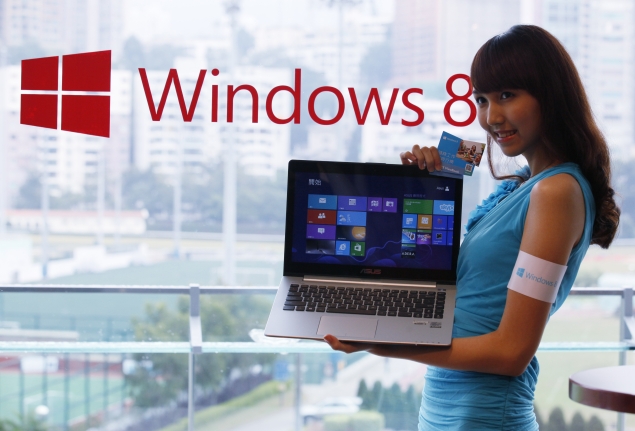- Home
- Laptops
- Laptops News
- Windows 8 PCs vulnerable to cyber threats, warns German agency
Windows 8 PCs vulnerable to cyber threats, warns German agency

Germany's Federal Office for Information Security, or BSI, said in a statement posted on its website on Wednesday that federal government agencies and critical infrastructure operators should pay particular attention to the risk.
The warning comes after weeks of public indignation in Germany over leaks related to U.S. surveillance programs. The spying scandal has become a headache for Chancellor Angela Merkel ahead of a September 22 election.
The problem, according to the BSI, is with the use of a computer chip known as the Trusted Platform Module, or TPM 2.0, which is built into Windows 8 computers. TPM 2.0 is designed to better protect PCs by interacting with a variety of security applications.
But the BSI, which provides advice on technology and security to the government as well as the public, said the joint implementation of Windows 8 and TPM 2.0 chips could lead to "a loss of control" over both the operating system and hardware, without specifying exactly how that could occur.
"As a result, new risks occur for users, especially for federal and critical infrastructure," it said.
The statement concluded: "The new mechanisms in use can also be used for sabotage by third parties. These risks need to be addressed."
Microsoft declined comment on the BSI statement.
The company provided Reuters with a statement saying that PC makers have the option to turn off TPM technology, so that customers can buy PCs with it disabled.
TPM was developed by the Trusted Computing Group, a non-profit organization backed by technology firms including IBM, Intel, Hewlett-Packard and Microsoft.
The BSI said it was working with the Trusted Computing Group and operating systems producers to find a solution.
A spokeswoman for that group declined to comment on the specific claims raised by the BSI. She said the group has provided PC makers and users with plenty of advice on best security practices to avoid any threats that they may face.
© Thomson Reuters 2013
Get your daily dose of tech news, reviews, and insights, in under 80 characters on Gadgets 360 Turbo. Connect with fellow tech lovers on our Forum. Follow us on X, Facebook, WhatsApp, Threads and Google News for instant updates. Catch all the action on our YouTube channel.
Related Stories
- Samsung Galaxy Unpacked 2026
- iPhone 17 Pro Max
- ChatGPT
- iOS 26
- Laptop Under 50000
- Smartwatch Under 10000
- Apple Vision Pro
- Oneplus 12
- OnePlus Nord CE 3 Lite 5G
- iPhone 13
- Xiaomi 14 Pro
- Oppo Find N3
- Tecno Spark Go (2023)
- Realme V30
- Best Phones Under 25000
- Samsung Galaxy S24 Series
- Cryptocurrency
- iQoo 12
- Samsung Galaxy S24 Ultra
- Giottus
- Samsung Galaxy Z Flip 5
- Apple 'Scary Fast'
- Housefull 5
- GoPro Hero 12 Black Review
- Invincible Season 2
- JioGlass
- HD Ready TV
- Latest Mobile Phones
- Compare Phones
- Tecno Pova Curve 2 5G
- Lava Yuva Star 3
- Honor X6d
- OPPO K14x 5G
- Samsung Galaxy F70e 5G
- iQOO 15 Ultra
- OPPO A6v 5G
- OPPO A6i+ 5G
- Asus Vivobook 16 (M1605NAQ)
- Asus Vivobook 15 (2026)
- Brave Ark 2-in-1
- Black Shark Gaming Tablet
- boAt Chrome Iris
- HMD Watch P1
- Haier H5E Series
- Acerpure Nitro Z Series 100-inch QLED TV
- Asus ROG Ally
- Nintendo Switch Lite
- Haier 1.6 Ton 5 Star Inverter Split AC (HSU19G-MZAID5BN-INV)
- Haier 1.6 Ton 5 Star Inverter Split AC (HSU19G-MZAIM5BN-INV)







![[Partner Content] OPPO Reno15 Series: AI Portrait Camera, Popout and First Compact Reno](https://www.gadgets360.com/static/mobile/images/spacer.png)









